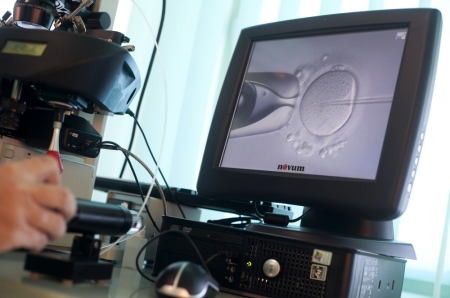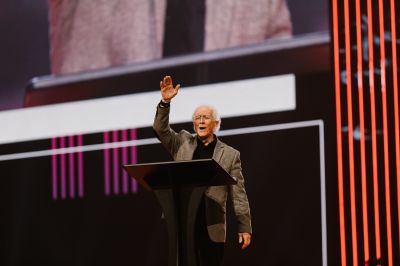IVF babies are ‘knit together by God’ but Christians should be hesitant, says theologian

Babies conceived through in vitro fertilization (IVF) are “knit together by God” in the womb like babies conceived in the traditional manner, according to notable Bible teacher John Piper.
In an episode of “Ask Pastor John” posted to DesiringGod.org on Monday, Piper was asked by a listener named “Carly” about how to explain the Christian perspective on babies conceived by IVF.
The question of being “knit together” derives from Psalm 139:13, which reads, “For you created my inmost being; you knit me together in my mother’s womb.”
“How can a Christian explain to non-Christians that every child is a gift from God when some children are conceived medically through IVF and other fertility treatments? I’m at a loss and I really want to be able to answer this question,” inquired Carly.
“I believe all children are from God. But how do I answer this question? I recently saw a story about a lesbian couple who conceived a child through IVF. The child was fertilized by donor sperm and implanted in one woman and then harvested and implanted in the other woman to carry to term. It’s so unnatural, but I know that child is meant to be here.”
Piper began by saying Christians "should be very careful, thoughtful, and hesitant to walk very far outside the natural processes God has put in place for making babies."
"There is an entire global industry of baby-making which is shot through with unanswered ethical and medical questions," he said.
Pointing out the problem of thousands of frozen embryos being abandoned, Piper said he is not opposed to adopting such embryos. “There are people at our church that have done that: adopted an embryo, put it in Mom, and raised the baby.”
“I don’t think we should make decisions that contribute to that problem," he stressed. "We’ve got ourselves with these thousands of frozen little babies because of all kinds of technological things that we didn’t foresee would create all these issues."
Piper then argued that “creating human babies is decisively God’s work, not man’s” and cited multiple Bible verses, among them Job 10:11-12, Psalm 71:6, and Ecclesiastes 11:5.
“No baby decides if he or she is human. No parent decides if their baby is human. No sperm donor, egg donor, or womb donor decides if the baby is human,” said Piper.
“I conclude from these passages and others that humans don’t bring humans into being; God does. Humans contribute genetic material, but God makes the union of egg and sperm the living, eternal human soul.”

In arguing that IVF babies are knit together by God, Piper pointed out that “God often uses foolishness and even evil to bring beauty into being.”
“If God really creates a human soul that once did not exist, and now exists forever as a person, then doing this Godlike thing — through natural or unnatural, good or bad, sinful or un-sinful ways of uniting egg and sperm — is a piece of cake," he added. "It’s relatively easy. I mean, creating a human being is the great glory and mystery. The how is relatively unimportant when it comes to whether God can do it or not.”
“If God can orchestrate Herod, Pilate, brutal Roman soldiers, and unbelieving Jews to bring about the greatest life-giving event that ever was — the death and resurrection of Jesus — then making a human baby with sinful humans is not a problem,” he concluded.
IVF is a controversial topic in certain Christian circles, with many questioning the ethics of the practice. For its part, the Roman Catholic Church outright opposes the practice.
“Techniques involving only the married couple (homologous artificial insemination and fertilization) are perhaps less reprehensible, yet remain morally unacceptable,” reads the Church’s Catechism in part.
“They dissociate the sexual act from the procreative act. The act which brings the child into existence is no longer an act by which two persons give themselves to one another, but one that entrusts the life and identity of the embryo into the power of doctors and biologists and establishes the domination of technology over the origin and destiny of the human person.”
The “Ask Pastor John” episode comes a month after Swedish researchers found that babies born through the use of IVF had a 45 percent higher mortality rate during their first 12 months of life.
“The proportions of children who were born preterm or with a low birth weight for gestational age were higher in assisted reproductive techniques-conceived than in natural conceived children," stated Kenny Rodriguez-Wallberg of the Department of Oncology and Pathology at Karolinska Institute.
“The main drivers for the first year mortality risk among children conceived with assisted reproductive techniques included respiratory distress, incomplete lung development, infections and neonatal hemorrhage, which are conditions often linked to prematurity.”





















